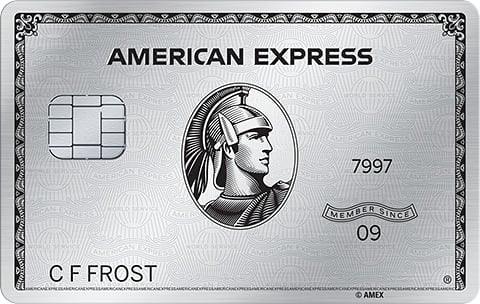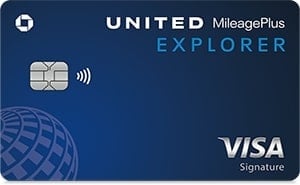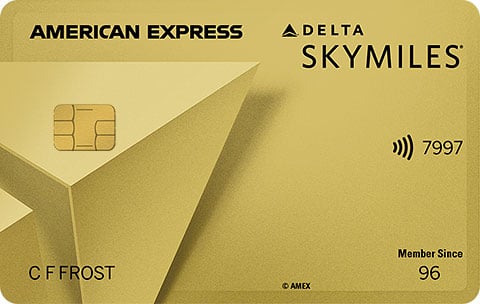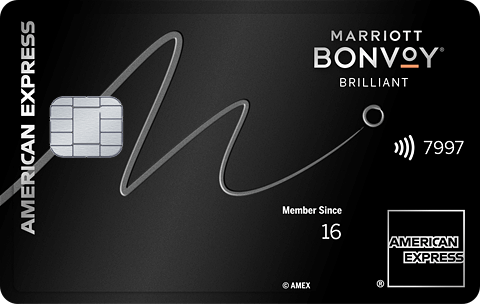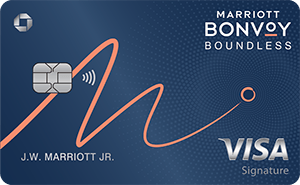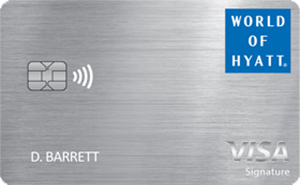11 Credit Cards That Provide Travel Insurance
You might not need a separate, standalone policy if you're already covered with credit card travel insurance.

Many or all of the products on this page are from partners who compensate us when you click to or take an action on their website, but this does not influence our evaluations or ratings. Our opinions are our own.
When things go wrong with your trip, travel insurance can help get your money back. But it’s also an added expense, which can lead you to wonder: Do I really need it, and is it worth it?
I typically don’t purchase travel insurance, because I know that many of the travel credit cards in my wallet include travel insurance benefits. That’s why I wasn’t worried when severe thunderstorms forced me to stay overnight at my connecting airport on the way to Brazil, since I knew my hotel stay would be covered. While airlines typically don’t cover hotels for weather-related delays, many credit card travel insurance benefits do.
That’s why I’m a big fan of cards like the Capital One Venture X Rewards Credit Card and Chase Sapphire Preferred® Card. Even though these cards come with annual fees, benefits like credit card travel insurance can go a long way to help offset those costs — and that’s not even factoring in perks like travel credits and boosted points earning categories.
Several other credit cards also provide travel insurance benefits, which can include trip cancellation, trip interruption, and car rental loss and damage insurance. Typically, you’ll need to use your card to pay for your flights, rental cars and other travel expenses for the benefits to apply.
What does your credit card travel insurance cover?
Credit cards that offer travel insurance often provide a variety of benefits. With a higher annual fee, you’ll typically get more types of coverage and higher coverage amounts. Here are some common issues that credit card travel insurance will cover:
- Baggage delay. If your luggage doesn’t arrive when you do, you may receive a reimbursement to offset the costs of having to purchase new attire and other items you may need. The length of delay required and the coverage offered varies by card.
- Lost/damaged baggage. If your bags are lost or damaged by a carrier, or items have been stolen from your baggage, your provider may provide monetary compensation.
- Trip delay. If your trip on a common carrier is delayed, you may receive monetary compensation to help cover meals, hotels, transportation and necessary purchases up to a certain amount per ticket.
- Trip cancellation. If you need to cancel a prepaid, nonrefundable trip, you may receive compensation to offset the lost funds. This benefit generally applies to cancellations for covered reasons, which vary by card.
- Trip interruption. If you miss a portion of your trip due to a covered reason, this benefit will reimburse you for any unused, prepaid, nonrefundable reservations (i.e., excursions, hotel nights).
- Medical treatment. If you are hurt while traveling and require medical treatment, medical expenses may be covered up to a certain dollar amount.
- Medical evacuation. If your illness or injury requires you to return home immediately for care, the insurance coverage through your card may cover the costs.
- Travel accident insurance. In the case of accidental death or dismemberment, your credit card may provide coverage to you or your beneficiary.
- Rental car insurance. This coverage protects your rental car against theft and damage. Coverage may be primary or secondary to your personal auto insurance, depending on the card.
» Learn more: Should you insure your cruise?
Popular credit cards with travel insurance
The best travel rewards cards typically include various forms of travel insurance, especially for baggage issues, trip disruptions and car rentals. However, the types and amounts of coverage will vary depending on the card. Some may also have rules about when coverage applies, such as needing to charge a portion or the entirety of the expense to your card. Make sure you read your guide to benefits to understand what’s required to make an eligible claim.
If you have a different travel rewards card than what’s listed here, check the benefits of your card to see what kind of coverage it offers.
While travel insurance can be a reason to get a credit card, it shouldn't be your sole reason. Consider what other factors you're looking for in a travel credit card. For example, you may want to earn transferable rewards or you may prefer specific points currencies, especially if you're loyal to an airline or hotel program.
If you want to earn transferable rewards
Some travel cards earn transferable rewards, which means the points you earn can be transferred to different airline and hotel loyalty programs that the card issuer partners with. NerdWallet typically recommends these cards because they offer the most flexibility in terms of how you use your points. These cards typically offer the most generous travel insurance protections.
- Annual fee: $795.
- Trip cancellation: Up to $10,000 per person and $20,000 per trip. Maximum benefit of $40,000 per 12-month period.
- Trip interruption: Up to $10,000 per person and $20,000 per trip. Maximum benefit of $40,000 per 12-month period.
- Trip delay: Up to $500 per person for delays more than six hours or requiring an overnight stay.
- Baggage delay: Up to $100 per day for five days for delays more than six hours.
- Lost luggage: Up to $3,000 per passenger. New York state residents get $2,000 per bag, up to a maximum of $10,000 for all covered persons per trip.
- Travel accident: Up to $1,000,000.
- Rental car insurance: Primary coverage up to $75,000 (for New York residents with personal auto insurance, domestic coverage is secondary).
- Annual fee: $95.
- Trip cancellation: Up to $10,000 per person and $20,000 per trip. Maximum benefit of $40,000 per 12-month period.
- Trip interruption: Up to $10,000 per person and $20,000 per trip. Maximum benefit of $40,000 per 12-month period.
- Trip delay: Up to $500 per person for delays more than 12 hours or requiring an overnight stay.
- Baggage delay: Up to $100 per day for five days for delays more than six hours.
- Lost luggage: Up to $3,000 per passenger. New York state residents get $2,000 per bag, up to a maximum of $10,000 for all covered persons per trip.
- Travel accident: Up to $500,000.
- Rental car insurance: Primary coverage up to $60,000 (for New York residents with personal auto insurance, domestic coverage is secondary).
- Annual fee: $895.
- Trip cancellation: Up to $10,000 per trip. Maximum benefit of $20,000 per 12-month period.
- Trip interruption: Up to $10,000 per trip. Maximum benefit of $20,000 per 12-month period.
- Trip delay: Up to $500 per trip for delays more than 6 hours.
- Lost luggage: Up to $3,000 per passenger.
- Travel accident insurance. Up to $500,000.
- Rental car insurance: Secondary coverage.
Terms apply.
- Annual fee: $395.
- Trip cancellation: Up to $2,000 per person for nonrefundable common carrier tickets.
- Trip interruption: Up to $2,000 per person for nonrefundable common carrier tickets.
- Trip delay: Up to $500 per ticket for delays more than six hours or requiring an overnight stay.
- Lost luggage: Up to $3,000 per trip. New York state residents get up to $2,000 per bag.
- Travel accident: Up to $1,000,000.
- Rental car insurance: Primary coverage up to actual cash value of vehicle.
- Benefits may change over time.*
If you fly often with a specific airline
Those who live near an airline’s hub or fly often with a specific carrier may want a credit card that includes airline-specific perks such as a free checked bag or priority boarding. Here are some popular airline cards that include travel insurance benefits, but other airline cards may also have them.
- Annual fee: $0 intro for the first year, then $150.
- Trip cancellation: Up to $1,500 per person and $6,000 per trip.
- Trip interruption: Up to $1,500 per person and $6,000 per trip.
- Trip delay: Up to $500 per person for delays more than 12 hours or requiring an overnight stay.
- Baggage delay: Up to $100 per day for three days.
- Lost luggage: Up to $3,000 per passenger. New York state residents get $2,000 per bag, up to a maximum of $10,000 for all covered persons per trip.
- Travel accident insurance. Up to $500,000.
- Rental car insurance: Primary coverage up to $60,000.
- Annual fee: $0 intro for the first year, then $150.
- Lost carry-on luggage: Up to $1,250 per person for carry-on baggage while in direct transit to or from a common carrier terminal, while traveling on a common carrier or while at a common carrier terminal.
- Lost checked luggage: Up to $500 per person while traveling on a common carrier. For luggage claims, New York state residents get up to a maximum of $10,000 for all covered persons per trip.
- Rental car insurance: Secondary coverage, up to $50,000.
Terms apply.
If you stay often with a specific hotel loyalty program
Those who stay often at a specific hotel chain or have elite status with one can benefit from a hotel-branded credit card. Here are some of our favorites with travel insurance benefits, but other hotel cards may also be worth considering.
- Annual fee: $650.
- Trip cancellation: Up to $10,000 per trip. Maximum benefit of $20,000 per 12-month period.
- Trip interruption: Up to $10,000 per trip. Maximum benefit of $20,000 per 12-month period.
- Trip delay insurance: Up to $500 per trip for delays more than six hours. Maximum two claims per 12-month period.
- Lost luggage: Up to $3,000 per passenger. New York state residents get $2,000 per bag, up to a maximum of $10,000 for all covered persons per trip.
- Rental car insurance: Secondary coverage, up to $75,000.
- Annual fee: $95.
- Trip delay: Up to $500 per person for delays more than 12 hours or requiring an overnight stay.
- Baggage delay: Up to $100 per day for five days for delays of over six hours.
- Lost luggage: Up to $3,000 per passenger. New York state residents get $2,000 per bag, up to a maximum of $10,000 for all covered persons per trip.
- Travel accident insurance: Up to $500,000.
- Rental car insurance: Secondary coverage domestically and primary coverage abroad, up to $60,000.
- Annual fee: $550.
- Trip cancellation: Up to $10,000 per trip. Maximum benefit of $20,000 per 12-month period.
- Trip interruption: Up to $10,000 per trip. Maximum benefit of $20,000 per 12-month period.
- Trip delay: Up to $500 per trip for delays more than 6 hours. Maximum two claims per 12-month period.
- Lost luggage: Up to $3,000 per passenger. New York state residents get $2,000 per bag, up to a maximum of $10,000 for all covered persons per trip.
- Rental car insurance: Secondary, up to $75,000.
- Annual fee: $95.
- Trip cancellation: Up to $5,000 per person and $10,000 per trip. Maximum benefit of $20,000 per 12-month period.
- Trip interruption: Up to $5,000 per person and $10,000 per trip. Maximum benefit of $20,000 per 12-month period.
- Trip delay: Up to $500 per person for delays more than 12 hours or requiring an overnight stay.
- Baggage delay: Up to $100 per day for five days for delays of over six hours.
- Lost luggage: Up to $3,000 per passenger. New York state residents get $2,000 per bag, up to a maximum of $10,000 for all covered persons per trip.
- Travel accident insurance: Up to $500,000.
- Rental car insurance: Secondary coverage domestically and primary coverage abroad, up to $60,000.
- Annual fee: $99.
- Trip cancellation: Up to $5,000 per person and $10,000 per trip. Maximum benefit of $20,000 per 12-month period.
- Trip interruption: Up to $5,000 per person and $10,000 per trip. Maximum benefit of $20,000 per 12-month period.
- Baggage delay: Up to $100 per day for three days for delays of over six hours.
- Lost luggage: Up to $3,000 per passenger. New York state residents get $2,000 per bag, up to a maximum of $10,000 for all covered persons per trip.
- Travel accident insurance: Up to $500,000.
- Rental car insurance: Secondary coverage domestically and primary coverage abroad, up to $60,000.
Get the 'Cheat Codes' to Cheaper Travel
Unlocking the secret to saving a ton on travel is easier than you think. 📤 Our free newsletter shows you how in 5 min. or less.

Do I need additional travel insurance?
Even with the coverage listed above, some credit cards offering travel insurance benefits may not provide enough insurance for your needs. For example, if you have paid $10,000 for a vacation using your card and trip cancellation is not offered, you may want to purchase additional coverage. Likewise, if you book a very expensive trip but your card only covers $10,000 in trip cancellation coverage, you may want to consider additional coverage.
Keep in mind that some travel insurance benefits — particularly trip cancelation and trip interruption — only kick in if the disruption is due to a covered reason, which can vary based on the card you have. If you need something comprehensive, such as Cancel For Any Reason travel insurance, purchasing extra coverage may be a smart move.
When renting a car, be sure to check the specific requirements of your credit card, which may vary by location and type of vehicle.
So do you need travel insurance? Here’s a helpful way to think about it: If the amount you could lose is more than you want to lose (or can afford to lose) if something goes wrong, get the insurance. Make sure to pick the best travel insurance company that offers enough coverage to meet your travel needs.
» Learn more: Does trip insurance cover award flights?
*For Capital One products listed on this page, some of the benefits may be provided by Visa® or Mastercard® and may vary by product. See the respective Guide to Benefits for details, as terms and exclusions apply.
To view rates and fees of the Delta SkyMiles® Gold American Express Card, see this page.
To view rates and fees of the Marriott Bonvoy Brilliant® American Express® Card, see this page.
To view rates and fees of the American Express Platinum Card®, see this page.
All information about the Hilton Honors American Express Aspire Card has been collected independently by NerdWallet. The Hilton Honors American Express Aspire Card is no longer available through NerdWallet.
Insurance Benefit: Car Rental Loss & Damage Insurance
- Car Rental Loss and Damage Insurance can provide coverage up to $50,000 for theft of or damage to most rental vehicles when you use your eligible Card to reserve and pay for the entire eligible vehicle rental and decline the collision damage waiver or similar option offered by the Commercial Car Rental Company. This product provides secondary coverage and does not include liability coverage. Not all vehicle types or rentals are covered. Geographic restrictions apply.
- Eligibility and Benefit level varies by Card. Terms, Conditions and Limitations Apply.
- Please visit americanexpress.com/benefitsguide for more details.
- Underwritten by AMEX Assurance Company. Car Rental Loss or Damage Coverage is offered through American Express Travel Related Services Company, Inc.
Insurance Benefit: Baggage Insurance Plan
- Baggage Insurance Plan coverage can be in effect for Eligible Persons for eligible lost, damaged, or stolen Baggage during their travel on a Common Carrier (e.g. plane, train, ship, or bus) when the entire fare for a Common Carrier Vehicle ticket for the trip (one-way or round-trip) is charged to an eligible Account. Coverage can be provided for up to $1,250 for carry-on Baggage and up to $500 for checked Baggage, in excess of coverage provided by the Common Carrier (e.g. plane, train, ship, or bus). For New York State residents, there is a $10,000 aggregate maximum limit for all Covered Persons per Covered Trip.
- Eligibility and Benefit level varies by Card. Terms, Conditions and Limitations Apply.
- Please visit americanexpress.com/benefitsguide for more details.
- Underwritten by AMEX Assurance Company.
Insurance Benefit: Trip Delay Insurance
- Up to $500 per Covered Trip that is delayed for more than 6 hours; and 2 claims per Eligible Card per 12 consecutive month period.
- Eligibility and Benefit level varies by Card. Terms, Conditions and Limitations Apply.
- Please visit americanexpress.com/benefitsguide for more details.
- Underwritten by New Hampshire Insurance Company, an AIG Company.
Insurance Benefit: Trip Cancellation and Interruption Insurance
- The maximum benefit amount for Trip Cancellation and Interruption Insurance is $10,000 per Covered Trip and $20,000 per Eligible Card per 12 consecutive month period.
- Eligibility and Benefit level varies by Card. Terms, Conditions and Limitations Apply.
- Please visit americanexpress.com/benefitsguide for more details.
- Underwritten by New Hampshire Insurance Company, an AIG Company.
Insurance Benefit: Car Rental Loss & Damage Insurance
- Car Rental Loss and Damage Insurance can provide coverage up to $75,000 for theft of or damage to most rental vehicles when you use your eligible Card to reserve and pay for the entire eligible vehicle rental and decline the collision damage waiver or similar option offered by the Commercial Car Rental Company. This product provides secondary coverage and does not include liability coverage. Not all vehicle types or rentals are covered. Geographic restrictions apply.
- Eligibility and Benefit level varies by Card. Terms, Conditions and Limitations Apply.
- Please visit americanexpress.com/benefitsguide for more details.
- Underwritten by AMEX Assurance Company. Car Rental Loss or Damage Coverage is offered through American Express Travel Related Services Company, Inc.
Insurance Benefit: Baggage Insurance Plan
- Baggage Insurance Plan coverage can be in effect for Covered Persons for eligible lost, damaged, or stolen Baggage during their travel on a Common Carrier Vehicle (e.g., plane, train, ship, or bus) when the Entire Fare for a ticket for the trip (one-way or round-trip) is charged to an Eligible Card. Coverage can be provided for up to $2,000 for checked Baggage and up to a combined maximum of $3,000 for checked and carry-on Baggage, in excess of coverage provided by the Common Carrier. The coverage is also subject to a $3,000 aggregate limit per Covered Trip. For New York State residents, there is a $2,000 per bag/suitcase limit for each Covered Person with a $10,000 aggregate maximum for all Covered Persons per Covered Trip.
- Eligibility and Benefit level varies by Card. Terms, Conditions and Limitations Apply.
- Please visit americanexpress.com/benefitsguide for more details.
- Underwritten by AMEX Assurance Company.
How to maximize your rewards
You want a travel credit card that prioritizes what’s important to you. Here are some of the best travel credit cards of 2026:
- Flexibility, point transfers and a large bonus: Chase Sapphire Preferred® Card
- No annual fee: Wells Fargo Autograph® Card
- Flat-rate travel rewards: Capital One Venture Rewards Credit Card
- Bonus travel rewards and high-end perks: Chase Sapphire Reserve®
- Luxury perks: American Express Platinum Card®
- Business travelers: Ink Business Preferred® Credit Card
Article sources
NerdWallet writers are subject matter authorities who use primary,
trustworthy sources to inform their work, including peer-reviewed
studies, government websites, academic research and interviews with
industry experts. All content is fact-checked for accuracy, timeliness
and relevance. You can learn more about NerdWallet's high
standards for journalism by reading our
editorial guidelines.
Limited Time Only: Earn $1,000 Toward Travel!
Capital One Venture Rewards Credit Card 
Travel

For a limited time, the
Capital One Venture Rewards Credit Card is offering new cardholders an especially rich bonus: Enjoy $250 to use on Capital One Travel in your first cardholder year, plus earn 75,000 bonus miles once you spend $4,000 on purchases within the first 3 months from account opening - that’s equal to $1,000 in travel!
More like this
Related articles




